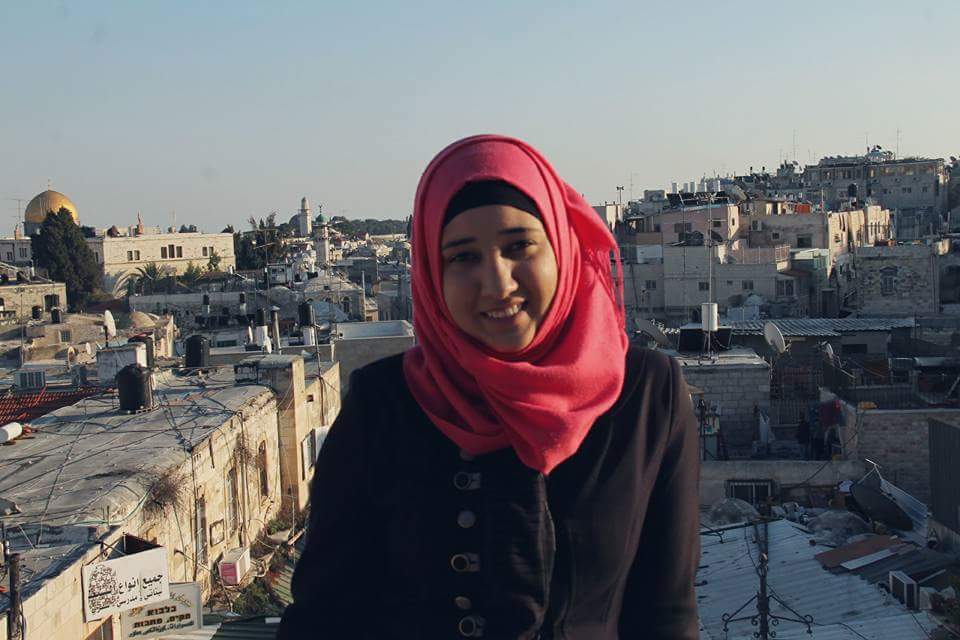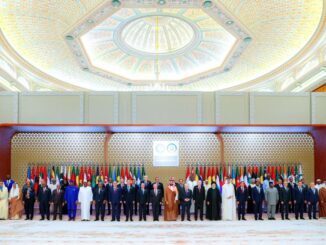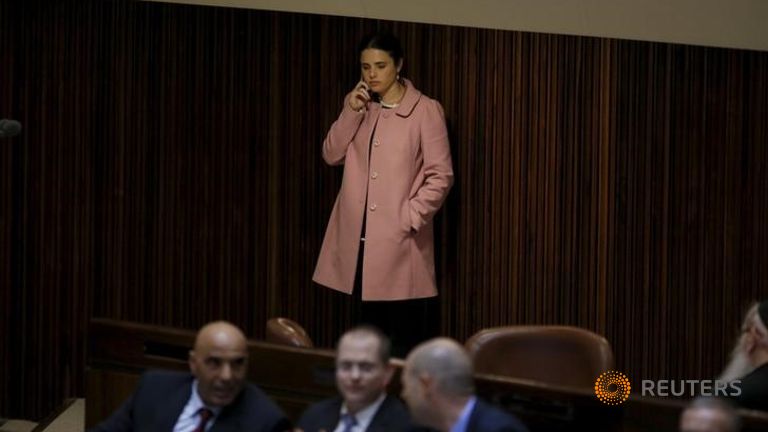
Israeli authorities ordered on Monday the release 25-year-old Palestinian journalist Samah Ala al-Din Dweik after she completes a six-month prison sentence.
Dweik was detained on April 10 in the occupied East Jerusalem neighborhood of Ras al-Amud over alleged “incitement” on Facebook. She was held without charge until Israeli authorities confirmed her indictment in July.
Israel’s policy of detaining Palestinian journalists was in violation of laws regarding media freedoms and freedom of expression.
The radio station also demanded greater participation from the international community to support Palestinian political prisoners, particularly journalists, and called to hold the Israeli government accountable for its crimes and violations of media freedoms and Palestinian journalists in international courts.
The Israeli Magistrate’s Court in Jerusalem found Dweik guilty of posting “inciting” posts on social media.
Amjad Abu Asab, the head of the Jerusalem Committee for Families of Prisoners, said in May that Dweik had been detained after writing a status and sharing an image in support of Palestinians recently killed by Israeli forces.
In recent months, Israel has detained scores of Palestinians for social media activity, alleging that a wave of unrest that swept the occupied Palestinian territory last October was encouraged largely by “incitement.”
Palestinians have instead pointed chiefly to the frustration and despair brought on by Israel’s nearly 50-year military occupation of the Palestinian territory and the absence of a political horizon.
In May, the Palestinian Prisoners’ Center for Studies (PPCS) estimated that at least 28 Palestinian women had been detained by Israel since October over alleged “incitement” on social media, with six of them still in prison, including Dweik.
Dweik’s release came a week after two right-wing Israeli ministers met with top Facebook executives on Monday in an effort to “minimize online anti-Semitic incitement” — the state of Israel’s latest effort to pressure the social media site to coordinate to remove content considered to promote “terrorism.”
Israel had previously blamed Facebook outright for the perceived proliferation of incitement, with Public Security Minister Gilad Erdan reportedly saying that Facebook chairman and cofounder Mark Zuckerberg had “blood on his hands” for not adequately cooperating with Israel to remove content.
In response to incitement claims against Palestinians, Palestine Liberation Organization (PLO) Secretary-General Saeb Erekat condemned the current Israeli government for its failure to “entrench a culture of peace and coexistence within Israeli society” in a statement in July.
Erekat flipped the script, holding Israel responsible for incitement, saying “official Israeli discourse entrenches hatred, racism, and discriminatory attitudes against Palestinians. The discourse is only further entrenched by the institutional protection that is given to those who commit or incite violence against Palestinians.”



